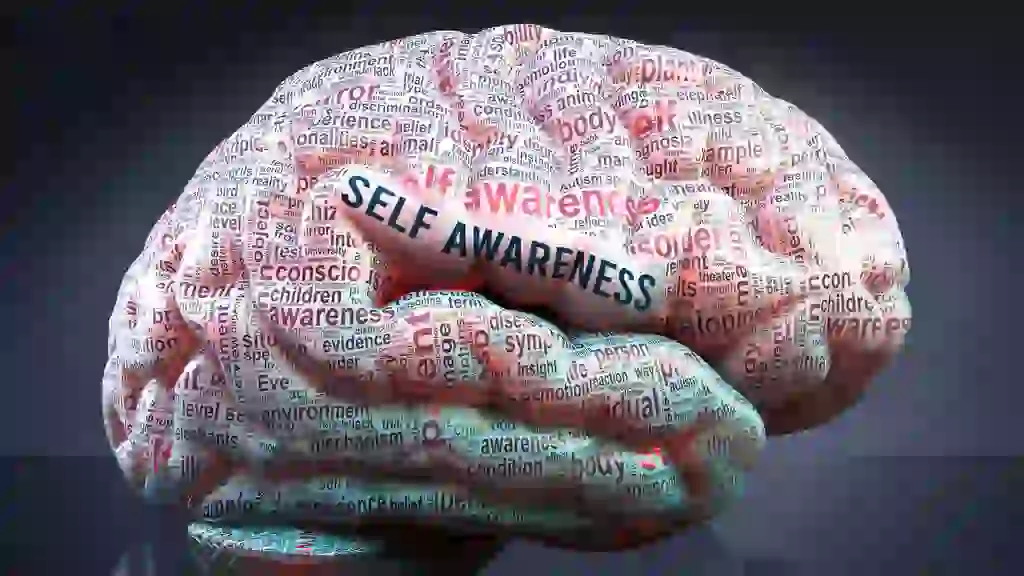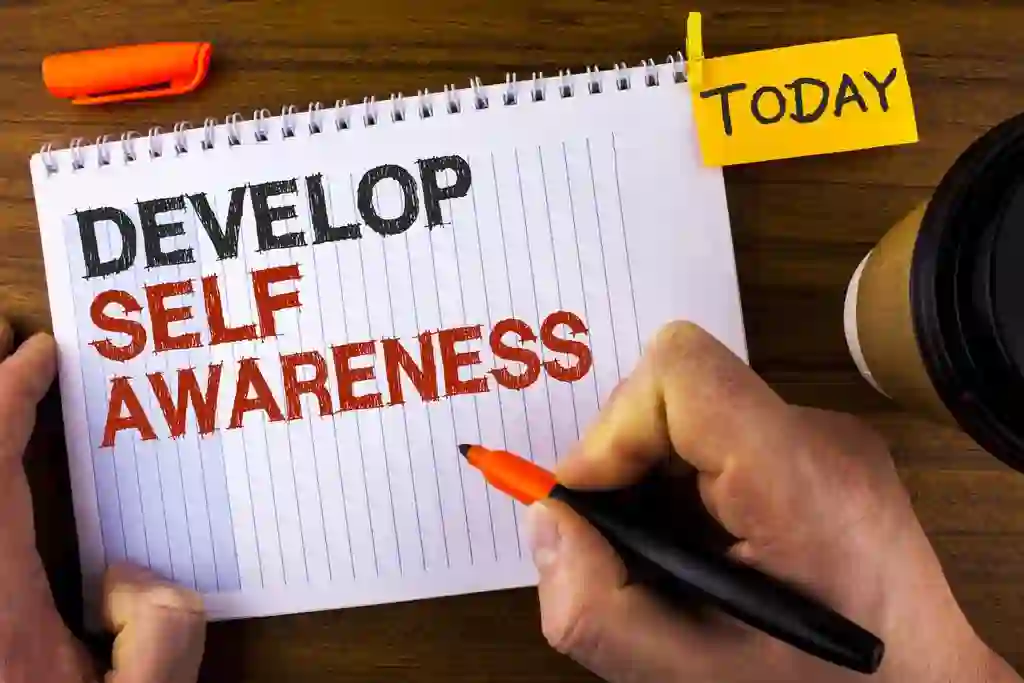What is self-awareness?
Gaining self-awareness is a critical component for achieving a life of health and fulfilment. To become more self-aware, it’s important to take the time to pay attention to your thoughts and emotions and understand why you’re feeling that way. Developing the ability to assess your reactions and emotions can help you have better control over them, creating a sense of clarity and understanding in your life.
Practicing self-awareness allows us to react better to situations or people who might trigger us. This is especially important for leaders who need to be able to manage their emotions in order to effectively lead others. When we are aware of our emotions and how we handle them, we are better equipped to process and work through them without unnecessary conflict.
Self-awareness can help us make better decisions, communicate more effectively with others and create healthier relationships with those around us.
What role does self-awareness play in the fields of leadership and business?
Self-awareness is an essential quality for any leader or businessperson. Without it, leaders can come off as arrogant and unapproachable, which can make it difficult to lead a company effectively. Self-awareness also plays a role in other business situations such as giving sales pitches or handling feedback. If you are not aware of how you will react or do not have a way to prevent a negative reaction, you could get yourself in trouble.
It is important to note that self-awareness does not always come naturally; many people develop coping mechanisms in childhood that can prevent them from achieving their goals. It is important to be aware of these behaviors and work on developing strategies to overcome them. With the right tools and techniques, anyone can become more self-aware and use this knowledge to become a better leader and businessperson.
Self-reflection allows entrepreneurs to take a step back and objectively assess their own performance, strengths, and weaknesses. This can help them identify areas where they need to improve or develop new skills in order to reach their goals. It also helps them recognize when they are making mistakes and how to avoid them in the future. Self-reflection can also help entrepreneurs stay motivated and focused on their goals, as they are able to see the progress they have made and the areas where they still need to work.
Overall, self-awareness is an essential quality for any leader or businessperson and self-reflection is a key element of this.
What are self-awareness skills?
Leadership and individual development are both heavily dependent on possessing self-awareness skills. This includes an understanding of your own emotions, responses, and potential reactions to the behavior of others. With this knowledge, leaders can stay grounded, perceptive and dedicated to their goals. Developing self-awareness skills can help individuals become more empathetic and adaptive in different situations.
Empathy is an important self-awareness skill that allows individuals to better understand the feelings of those around them.
Adaptability is also a key skill, as it allows people to adjust their reactions in order to avoid difficult situations or take a few deep breaths before responding.
Self-reflection is another important self-awareness skill. Self-reflection involves taking the time to think about your thoughts, feelings and actions in order to gain a better understanding of yourself. This can help you identify areas where you need to improve or develop new strategies for dealing with difficult situations. By taking the time to reflect on their thoughts, feelings, and actions, entrepreneurs can gain a better understanding of themselves and develop strategies for success.
Developing self-awareness skills such as empathy, adaptability and self-reflection can help individuals become more empathetic and adaptive in different situations. By developing these skills, leaders can help guide those around them towards success by teaching them how to be mindful of their own emotions and reactions.
In conclusion, self-awareness is an essential quality for any leader or businessperson. Being mindful means being aware of your personal emotions and reactions, as well as anticipating how others may respond.
Striving for more
Self-aware leaders strive for more than just individual success. They are driven by a desire to make a lasting difference in the world and they use their self-awareness to objectively identify areas where they need to improve. Self-awareness helps them remember why they wanted to become leaders in the first place, and it allows them to discover and live out the impact that they want to have on their team members, organizations and even the world.
By recognizing their strengths and weaknesses, self-aware leaders can develop strategies for improvement that will help them reach their goals. They can also use this knowledge to create an environment of trust and collaboration within their teams. Self-awareness is not only a tool for success; it is also a way for leaders to stay connected with their purpose and ensure that they are making meaningful contributions towards achieving it.
Self-reflection is an essential element of entrepreneurial success. It allows entrepreneurs to identify their strengths and weaknesses, recognize areas for improvement and develop strategies to reach their goals. Self-reflection also helps entrepreneurs stay connected with their purpose and ensure that they are making meaningful contributions towards achieving it.
Self-reflection can be done in a variety of ways, such as journaling, meditating or talking to a mentor. By taking the time to reflect on their thoughts, feelings and actions, entrepreneurs can gain insight into how they are perceived by others and how they can better lead their teams. Self-reflection is an important part of developing self-awareness and understanding yourself better, which is key to entrepreneurial success.

Ten suggestions for leaders to boost their self-awareness
Leaders can boost their self-awareness by following these ten suggestions:
1. Take time to reflect on your thoughts, feelings and actions. Self-reflection is an important part of developing self-awareness and understanding yourself better.
2. Identify areas for improvement and develop strategies to address them. This will help you become more aware of your weaknesses and how to overcome them.
3. Practice active listening. Listen to others with an open mind and be mindful of their feelings and reactions.
4. Ask for feedback from those around you. This will help you gain insight into how others perceive you and your leadership style.
5. Take time to observe the behavior of those around you. This will help you better understand their motivations and reactions to different situations.
6. Be open to constructive criticism and use it to improve your skills.
7. Take time to practice mindfulness techniques such as meditation or yoga. This will help you stay focused and centered in the present moment.
8. Develop empathy by putting yourself in the shoes of others and understanding their perspectives.
9. Learn how to be more adaptive by adjusting your reactions in order to avoid difficult situations.
10. Take time to celebrate your successes and learn from your mistakes. This will help you stay motivated and focused on achieving your goals.
Here are some key stats
- It’s called emotional intelligence, and accounts for nearly 90 percent of what sets high performers apart from peers with similar technical skills and knowledge (online.hbs.edu).
- According to research by organizational psychologist Tasha Eurich, 95 percent of people think they’re self-aware, but only 10 to 15 percent actually are, and that can pose problems for your employees (online.hbs.edu).
- Global leadership development firm DDI ranks empathy as the number one leadership skill, reporting that leaders who master empathy perform more than 40 percent higher in coaching, engaging others, and decision-making (online.hbs.edu).
- Among a sample set of about five-hundred global entrepreneurs and business builders, about 50% were Heart-dominant, 25% Luck, 15% Guts, and 10% Smarts (hbr.org).





